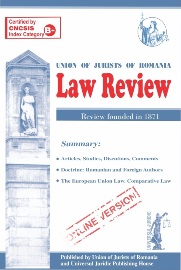FINANCIAL INTEGRATION AND FISCAL POLICY, IMPLICATIONS ON ECONOMIC GROWTH
FINANCIAL INTEGRATION AND FISCAL POLICY, IMPLICATIONS ON ECONOMIC GROWTH
Author(s): Anca Florentina Gavriluţă (Vatamanu), Otilia Oprea, Paula Andreea TerinteSubject(s): Law, Constitution, Jurisprudence, Civil Law, Economic development, Financial Markets, Fiscal Politics / Budgeting
Published by: Universul Juridic
Keywords: Financial Integration; Fiscal Policy; economic growth;
Summary/Abstract: This paper analyses the relationship between financial integration and fiscal policy, bringing the arguments which come to strengthen that in the context of financial integration, to influence economic growth, it is also necessary a consolidation of fiscal policy, and the stability of public finances. Basically, in our analysis, we want to build a research that stressed the importance of interplay between the variables involved, with the objective of economic growth. Our results reveal that there is a significant relationship between the three variables, namely financial integration, fiscal policy and economic growth and the international financial integration has increased the importance of financial sector policies. In addition, we find that financial integration affects the composition of government debt and enhances risk-sharing by increasing the share of foreign debt to the total. So, countries need strong macro-prudential policy frameworks. For our analysis, we retrieved data from the Eurostat and World Bank, including the EU 28-member states over the 2000-2014 period.
Journal: Law Review
- Issue Year: 2018
- Issue No: 01
- Page Range: 74-85
- Page Count: 12
- Language: English
- Content File-PDF

